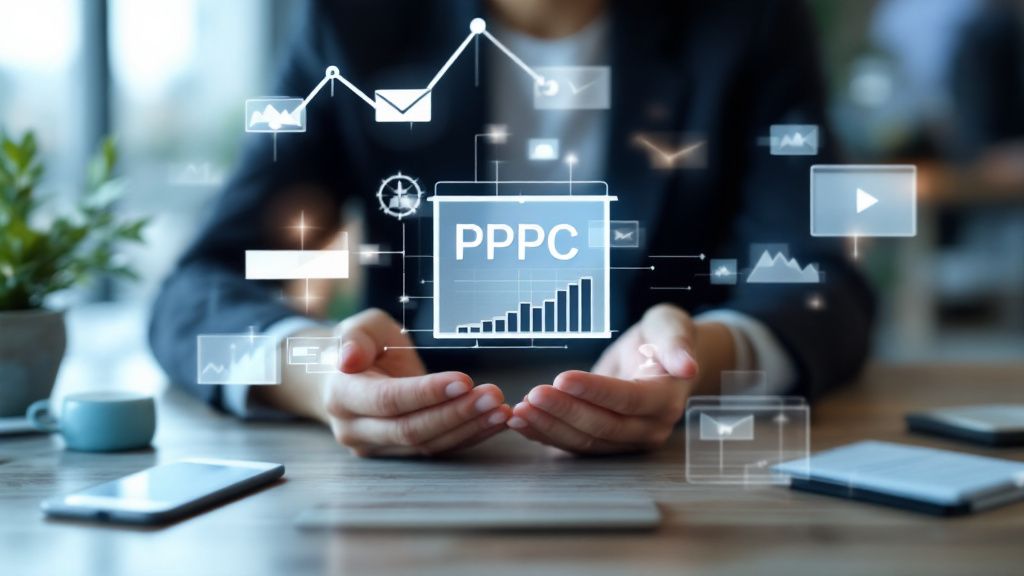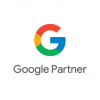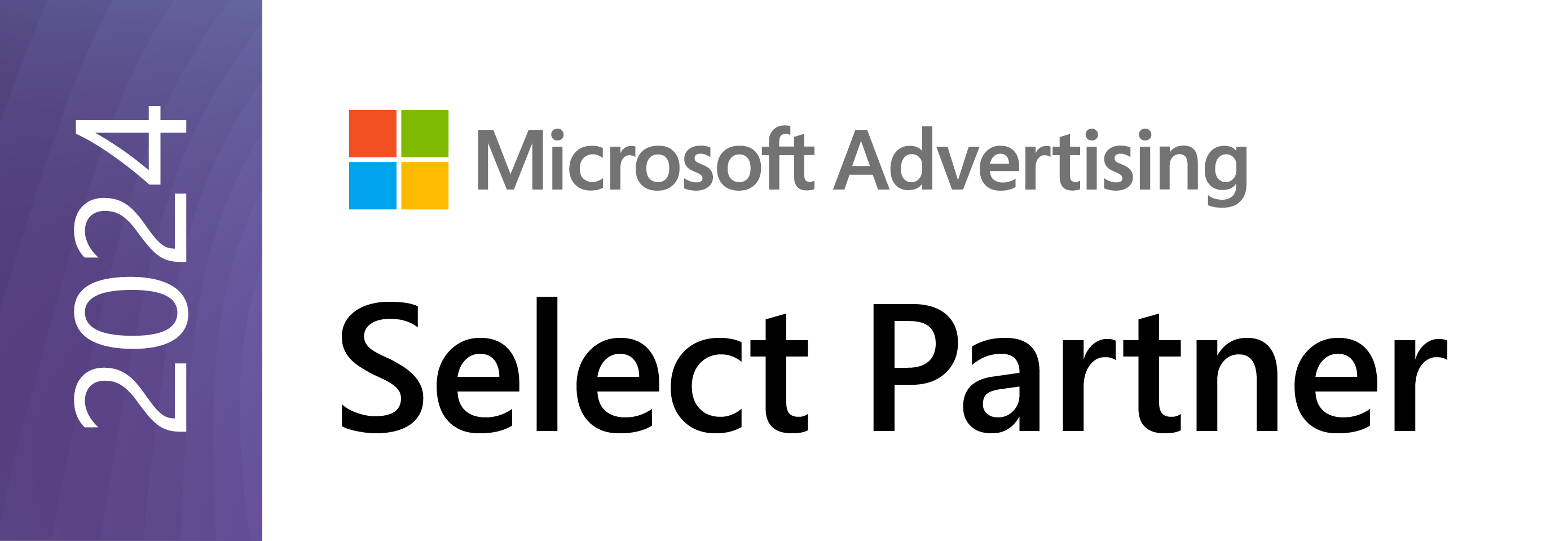
Unlocking Success with Expert PPC Advertising Services
Diving into the realm of PPC advertising can be a game-changer for your business. Expert PPC services provide you with the strategies needed to effectively target potential customers, optimize your spending, and transform clicks into profits. By employing seasoned PPC management, you gain insights that refine your advertising efforts, enabling you to reach your audience with precision. Pay per click advertising services help in crafting campaigns that maximize return on investment through keyword targeting and continuous performance analysis. Unleashing the power of PPC allows you to unlock success, achieving your business goals with expert guidance by your side.

Understanding PPC Advertising
PPC advertising stands as a powerhouse in the digital marketing arena, offering businesses an effective way to connect with their target audiences. This marketing model charges advertisers a fee each time their ad is clicked, making every engagement count. It’s this combination of cost-efficiency and precision targeting that makes PPC services an attractive option for businesses aiming to maximize their online presence.
Utilizing PPC management effectively requires an understanding of various components like keyword research, ad creation, and performance tracking. One essential aspect is selecting and bidding on the right keywords, which can make or break a campaign. The expertise of a PPC management team ensures that your ad spend is used efficiently, delivering high-quality traffic to your site while balancing cost and return on investment.
One unpopular opinion about PPC advertising is that it’s not suitable for all businesses. While most tout its benefits, some believe that certain niches might not see immediate returns. For businesses with niche markets or long sales cycles, alternative strategies could be more effective. However, when handled skilfully, even niche-focused PPC campaigns can be tailored to attract high-quality leads over time.
Pay per click advertising also offers the advantage of measurability. Unlike some traditional marketing methods, you can track every detail of your campaign’s performance, allowing for continuous optimization. Detailed analytics help you understand what’s working and what isn’t, giving you the opportunity to fine-tune your strategies for better outcomes.
Ultimately, understanding PPC advertising is about recognizing its potential to propel your business forward. With an effective PPC services partner, your business can thrive in a competitive digital landscape, leveraging insights and strategies to improve your visibility and drive growth.

Benefits of PPC for Businesses
PPC offers numerous benefits that can significantly enhance a business’s online strategy. One of the primary advantages is its capacity to drive immediate traffic. When you launch a campaign, your ads appear almost instantaneously, leading to quick results. This immediacy enables you to reach potential customers at the right time, promoting products or services effectively through well-managed PPC services.
Another benefit of PPC is its cost control. You have the flexibility to set a fixed budget and adjust bids, ensuring that you never exceed your financial limits. Through the careful management of ad spend, PPC management helps you optimize costs per conversion. The transparency of results further aids in evaluating the performance of your campaigns against business objectives.
The current state of PPC advertising shows a growing trend toward more dynamic and personalized ad experiences. With advancements in artificial intelligence and machine learning, businesses can now tailor their campaigns more precisely. This evolution in PPC management techniques allows for the creation of highly targeted advertisements, enhancing engagement rates and delivering more meaningful interactions with potential clients.

Types of PPC Advertising Platforms
PPC advertising platforms come in several forms, each offering unique advantages for your marketing campaigns. Google Ads stands as the most popular platform, providing a vast reach and detailed targeting options. It allows you to display ads on the search engine results page and across its network. With effective PPC management, you can maximize exposure and efficiently reach a large audience.
Bing Ads serves as another viable option, especially for targeting users within the Microsoft ecosystem. While its market share is smaller, Bing can deliver cost-effective campaigns with a different audience demographic. Its integration with other Microsoft services offers additional promotional opportunities. Thus, Bing Ads complements your marketing strategy by diversifying advertising channels.
On one hand, some experts view social media platforms like Facebook and Instagram as powerful PPC tools for their unparalleled user data and engagement potential. On the other hand, there are arguments suggesting traditional search-based PPC platforms remain more effective for direct intent-driven marketing. This contrasting perspective highlights the importance of understanding your business goals and audience behavior when selecting the right platform.
Other platforms, such as LinkedIn and Twitter, provide niche opportunities to engage with specific industry professionals or communities. LinkedIn is particularly suited for B2B marketing, offering precise targeting based on professional demographics. By choosing the right mix of PPC platforms, your business can effectively harness the power of pay per click advertising to achieve diverse marketing objectives.

Setting Up a Successful PPC Campaign
How does setting up a PPC campaign impact your business’s digital marketing success? The foundation of a successful PPC campaign begins with clear objectives. Define what you aim to achieve, whether it’s increasing website traffic, boosting sales, or enhancing brand awareness. Establishing these goals will shape your strategy and allow you to measure success effectively.
Keyword research is a crucial step in PPC management. Identifying the right keywords ensures your ads reach potential customers actively searching for related products or services. Using tools like Google Keyword Planner can help uncover high-performing keywords tailored to your industry. Consider both short-tail and long-tail keywords to capture diverse search intents.
Crafting compelling ad copy is essential to entice users to click on your ads. Effective ad copy should highlight key benefits, include a strong call-to-action, and resonate with your target audience. A/B testing different versions of your ad can provide insights into what copy best drives engagement and conversions, allowing for continual optimization.
Setting a budget and bidding strategy that aligns with your business goals is imperative. Decide on a daily budget that suits your financial capacity without compromising on reach and effectiveness. Choose a bidding strategy that aligns with your objectives, such as cost-per-click or cost-per-acquisition, to optimize ad spending.
Regular monitoring and analysis of your campaign’s performance are essential components of PPC services. Use analytics tools to track metrics like click-through rates, conversion rates, and ROI. This data-driven approach allows for adaptive changes to improve outcomes. Consistent evaluation ensures that your campaign remains relevant and effective in meeting your goals in the ever-evolving landscape of pay per click advertising.

Managing and Optimizing PPC Campaigns
Effective management and optimization are vital for the success and evolution of PPC campaigns. Regularly reviewing and adjusting keyword performance ensures that your campaign remains competitive. Eliminate underperforming keywords and allocate budgets to those generating the most conversions. By using data-driven insights, PPC management becomes a dynamic process that sharpens your advertising efforts.
To enhance the effectiveness of your pay per click advertising, try segmenting your audience. Creating distinct ad groups based on customer behavior or demographics allows for more tailored messaging. This approach not only improves click-through rates but also enhances user engagement by delivering relevant ads that resonate with specific audience segments.
Ad copy should be continually refined to maintain visitor interest. Testing different headlines and descriptions can reveal what appeals most to your target audience. Incorporate seasonal trends or current events to keep your ad content fresh and engaging. Consistent updates in your ad copy ensure it aligns with consumer interests and drives optimal outcomes.
Regularly analyzing your PPC services metrics is essential to identify improvement areas. Pay attention to click-through rates, cost per click, and conversion rates to guide strategic decisions. Such analysis helps in refining your bid strategies and budget allocations, ensuring your campaign remains efficient and aligned with your business objectives.

Avoiding Common PPC Mistakes
Navigating the complexities of PPC advertising involves steering clear of common pitfalls that can undermine your campaign’s success. Overlooking the importance of negative keywords is one such mistake. Not filtering out unwanted search terms leads to wasted budget on irrelevant clicks. Historically, PPC ads emerged in the early 2000s, when adopting strategic keyword use became crucial for maximizing return on investment.
Poorly structured ad groups can dilute your campaign’s effectiveness. Grouping diverse keywords under a single ad limits your ability to create tailored messaging, reducing relevance to searchers. From its evolution in the late ’90s, PPC has advanced to offer more sophisticated targeting options, emphasizing the importance of precise ad group organization. By segmenting ads according to themes or buyer stages, you’ll enhance targeting precision and campaign outcomes.



